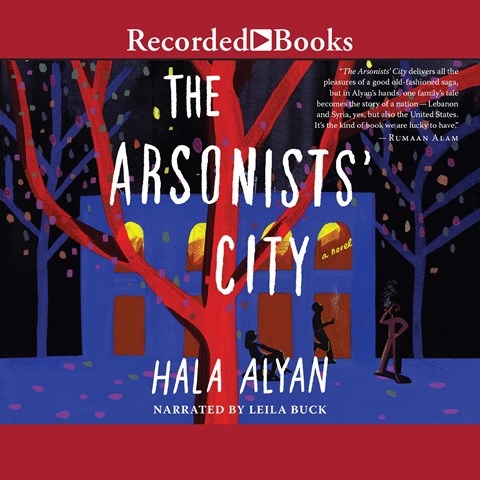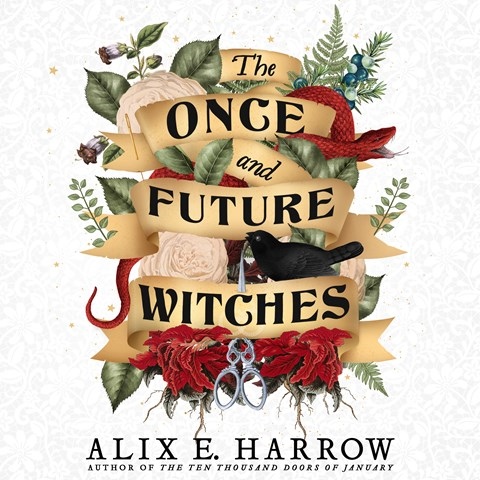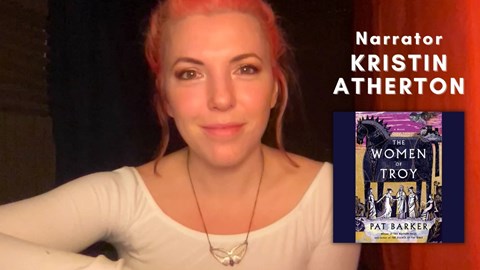There are few relationships in life as ripe for storytelling as sibling relationships. Siblings know each other in specific ways. They share experiences that friends, and even other family members, don’t share. I have two older brothers, and I’ve always been fascinated by sibling narratives. No two are alike! I’ve never met anyone with a sibling experience exactly like mine, and I don't expect I ever will. That’s part of what makes reading about siblings so wonderful—sibling books are as varied as siblings themselves.
This month I want to share three audiobooks that plunge into siblinghood—the good, the bad, and the murky. The one thing these books have in common (besides siblings) is their fantastic narration. Leila Buck, Gabra Zackman, and Kat Chow bring these three sets of siblings to life. Weeks after listening to these books, I can still hear the voices of some of the characters in my head—the mark of a truly memorable audiobook.
THE ARSONISTS' CITY by Hala Alyan is a gorgeous contemporary epic about a Lebanese Syrian American family. When their father decides to sell the family house in Beirut, three adult siblings reconvene for the first time in years and begin to untangle the threads of trauma, loss, and silence that have defined their family life.
Leila Buck wields true vocal magic in her enthralling narration of this complex family saga. She gives each one of them a distinct voice. Ava, the oldest, is a microbiologist. She lives a seemingly perfect life in Brooklyn with her husband and two kids, but her marriage is floundering, and the pressure to be the perfect daughter is wearing her down. Buck narrates her sections with an assured confidence, but you can hear the exhaustion underneath. It adds to the marvelous characterization that makes this novel so good; Ava’s personality is layered, and Buck captures each one of those layers.
Mimi, the middle child, works as a cook at an Austin restaurant. He’s impulsive and often unhappy, disappointed that his career in music didn’t pan out the way he wanted it to. Buck voices him with a kind of self-indulgent malaise. You can almost hear him growing up—wrestling with and coming to terms with his life—as the events of the book unfold. Naj, the youngest child, is a moderately famous musician living in Beirut. Her sections pulse with energy and rhythm, capturing the beat of modern Beirut and the passion of a talented singer. Together, these siblings tell a powerful story about forgiveness, redemption, and the power of history.
THE ONCE AND FUTURE WITCHES by Alix E. Harrow, read with equal brilliance by Gabra Zackman, is another book about the messy relationships between three siblings. This fantasy, set in Salem, Massachusetts in 1893, is about magic, witchcraft, direct political action, and the suffrage movement. Sisters James Juniper, Agnes Amaranth, and Beatrice Belladonna share a connection to magic and a painful past, but they lead very different lives. Juniper, the youngest, is determined and independent; Bella, the oldest, is a quiet librarian who believes in the power of words; and Agnes, the middle sister, is a mill worker, steady and responsible, who longs for a family. Zackman breathes life into the sisters, changing the tone and cadence of her voice for each. The story moves fluidly from one point of view to another, and Zackman’s subtle shifts make those switches immediately clear. Her rich voice is low and musical, which adds to the haunting atmosphere of the novel. Agnes, Bella, and Juniper may be fictional women from more than a hundred years ago, but the challenges they face as sisters are still relevant today.
 Sometimes a relationship is defined as much by its absence as by its presence. In SEEING GHOSTS, Kat Chow writes about grief and family history. Her mother died when Chow was a teenager, and here she explores how that absence changed her relationships with her father and two older sisters. Chow reads this memoir with grace and poise. Her family, including her two sisters, show up again and again. She recounts phone conversations with her sisters after her mom’s death, vacations with her dad, and stories from her parents’ childhoods. Hearing Chow speak all of these interactions aloud, voicing her sisters as well as her parents, adds to the intimacy of her story. Though her voice is mostly even, so many hints of laughter, familiarity, exasperation, and fondness emerge when she’s recounting conversations with her dad and sisters. It’s one of those audiobooks that feels almost too close at times—like Chow is offering up a gift in allowing listeners to see her and her family in so much messy detail.
Sometimes a relationship is defined as much by its absence as by its presence. In SEEING GHOSTS, Kat Chow writes about grief and family history. Her mother died when Chow was a teenager, and here she explores how that absence changed her relationships with her father and two older sisters. Chow reads this memoir with grace and poise. Her family, including her two sisters, show up again and again. She recounts phone conversations with her sisters after her mom’s death, vacations with her dad, and stories from her parents’ childhoods. Hearing Chow speak all of these interactions aloud, voicing her sisters as well as her parents, adds to the intimacy of her story. Though her voice is mostly even, so many hints of laughter, familiarity, exasperation, and fondness emerge when she’s recounting conversations with her dad and sisters. It’s one of those audiobooks that feels almost too close at times—like Chow is offering up a gift in allowing listeners to see her and her family in so much messy detail.








